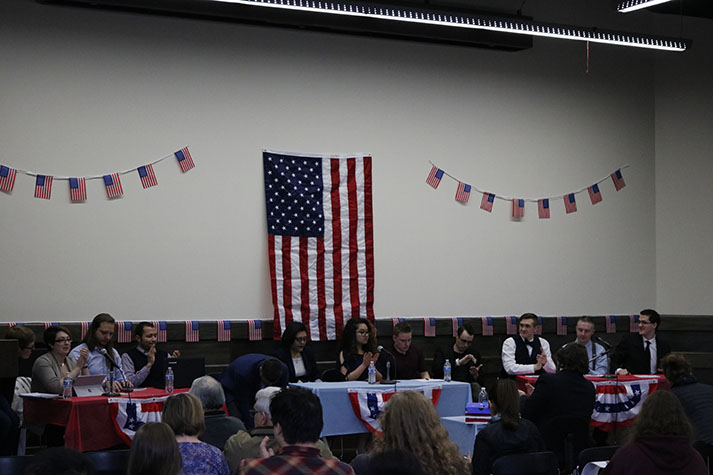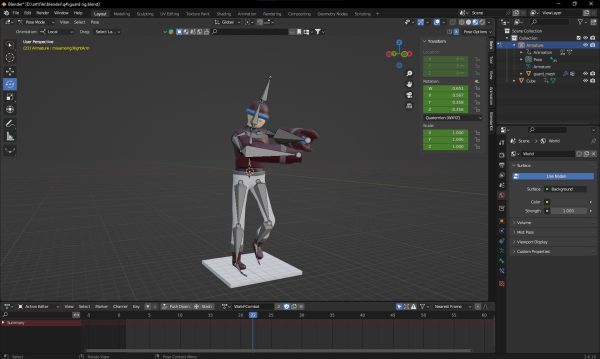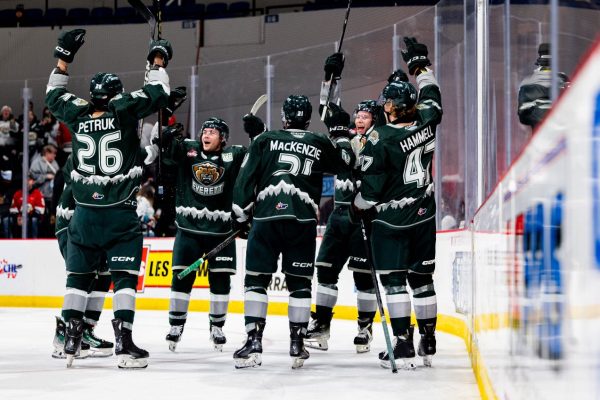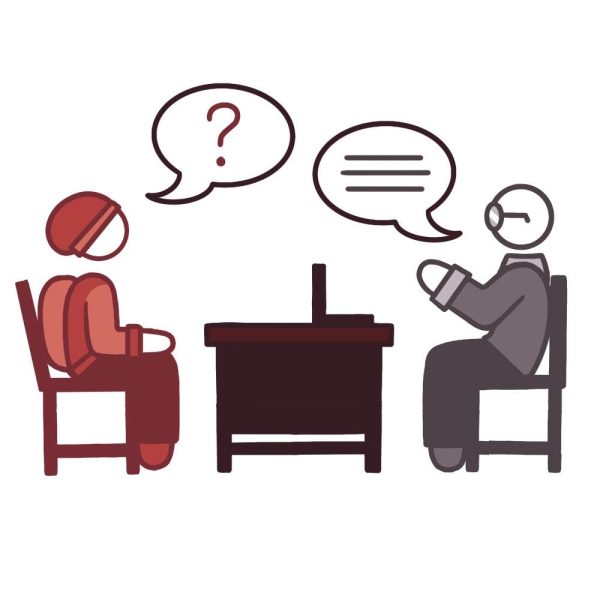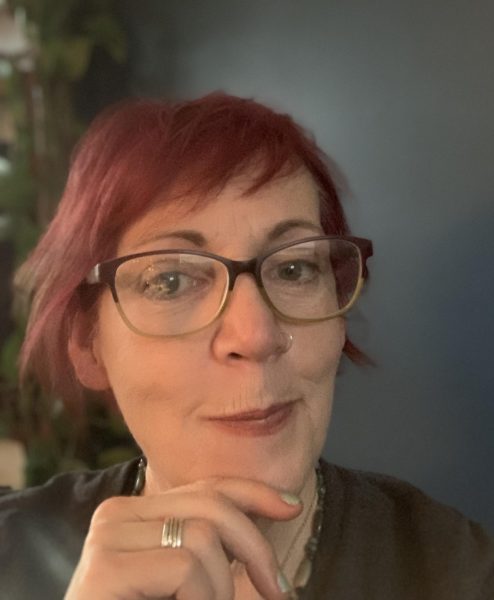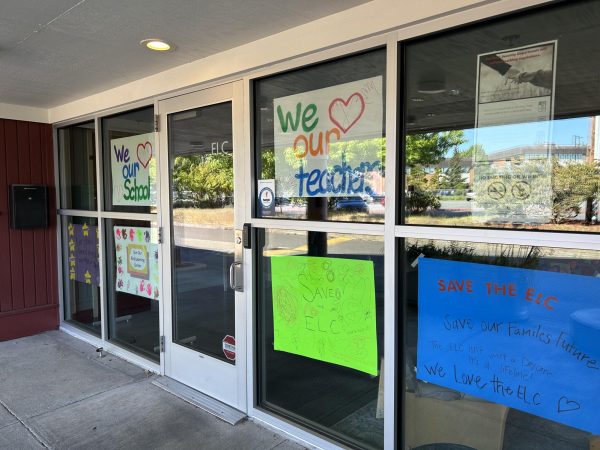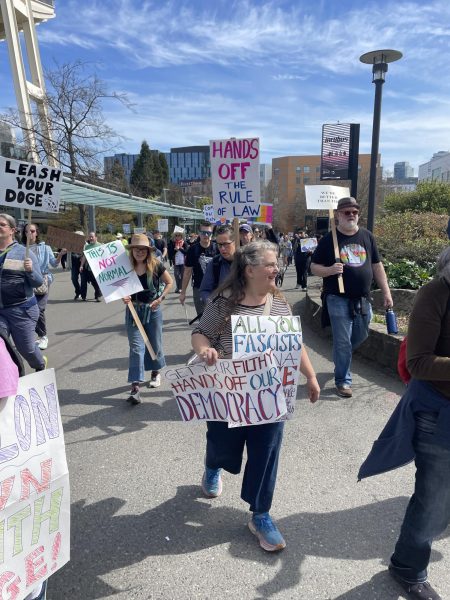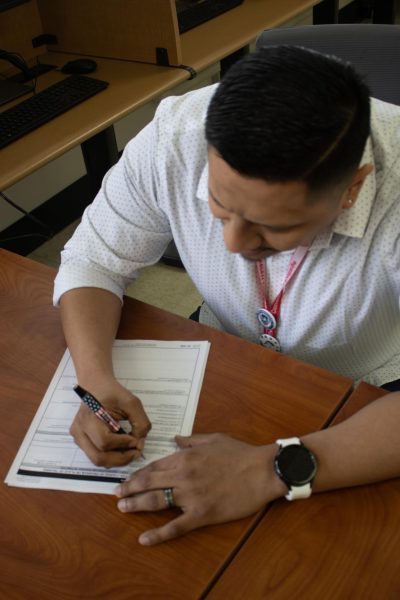Let’s Get Political: Understanding EvCC’s Political Clubs
Club members from the College Democrats, College Republicans and the Young Americans for Liberty answer questions submitted by students at the EvCC Town Hall on February 27, 2018.
Your college years are not just about algorithms, writing papers, and taking tests, it’s also a time to develop one’s set of opinions, values, and identity. Here’s what young Republicans and Democrats on campus had to say about the importance of understanding politics, speaking up, and getting involved as young adults, as well as a few common misconceptions affecting their political party today.
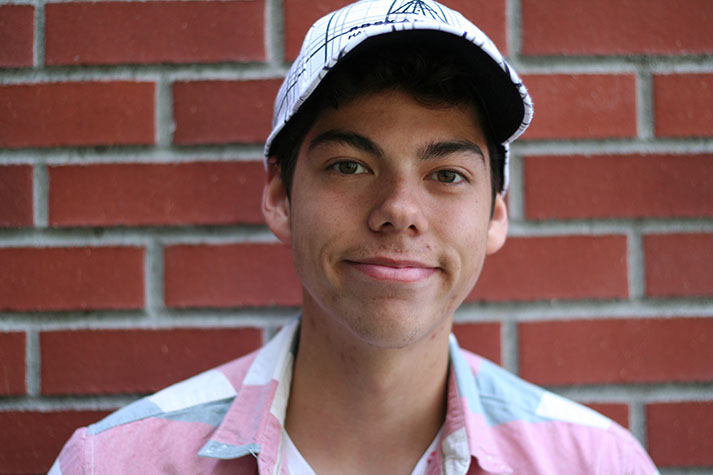
John Michael Graves, a Republican student at EvCC.
Members of both political parties agree that it’s important to get involved in politics and discuss these matters on campus and at a young age because these policies affect students’ everyday lives. “The founding fathers intended an intelligent and informed democracy–when you stray away from that, other problems bubble under the surface where ignorance kind of just takes over. Know who’s controlling you,” says Republican student John Michael Graves, 20.
“The ability to talk about politics will enable you to think more intelligently, to form your arguments better, to at least see someone else’s point of view,” says Republican student Clarie Denise Calicdan, 19.
Democratic student Cameron Calder, 21, says that Republicans and Democrats are two sides of the same capitalist coin. “Whether or not you agree or disagree with capitalist ideology, they’re two halves of the same coin, they’re just arguing about how to get to where they want to go.”
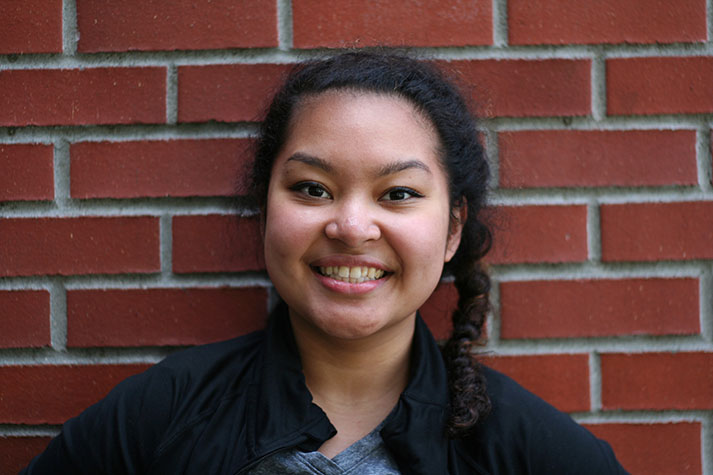
Clarie Denise Calicdan, a Republican student at EvCC.
“A common misconception about the Republican party is that we’re all racists, but I mean, John and I, we’re immigrants from another country, and we’re of color…when I’m in the college Republicans club, nobody sees me as the Black girl or the Asian girl, they see me as Clarie, the Chemical Engineering major, ‘now let’s see what you’ve got to bring to the table.’” says Calicdan.
Graves hopes to dispel “the old white man stereotype.” He said Republicans are more concerned about “What makes you, you, for how you think and how you perceive the world.”
Democratic student Katina Brown, 27, says a misconception about the Democratic party is that sometimes people “make us seem sappy, like people who only care about small things and not the bigger picture.”
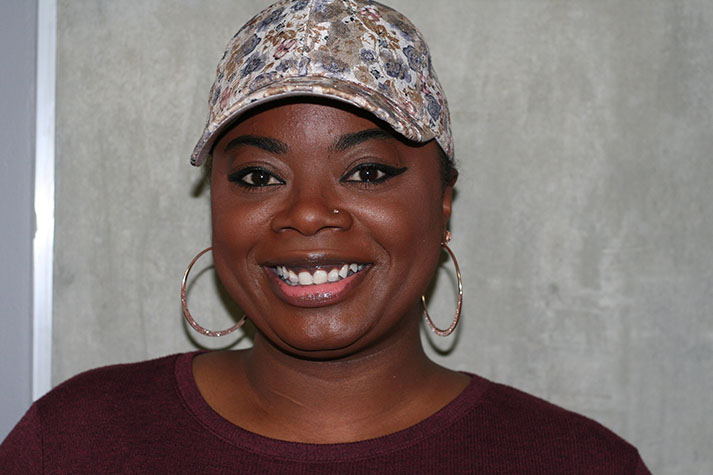
Katina Brown, a Democratic student at EvCC.
Gun regulation has been a hotly contested topic, but Calder adds that “No one wants to come to your house and make you turn over your weapons, we just want to make sure that who has them is mentally sane and competent enough to have them. No one is going to come to your house and take your shit.”
On the topic of Welfare, Calder says, “They think that we want everyone to not work and just live off the government and get welfare checks, but I would rather see nobody on welfare, but obviously, the way that that system is structured is keeping people on it rather than helping them get lifted out of it.”
Particularly in the last election, social media plays a huge role in young peoples’ perception when it comes to politics.
Calicdan says, “the fact that politics is used in social media, I think that that’s indicative of a strategy, that they know how to reach young people because we’re the ones who will be carrying the next set of policies…”
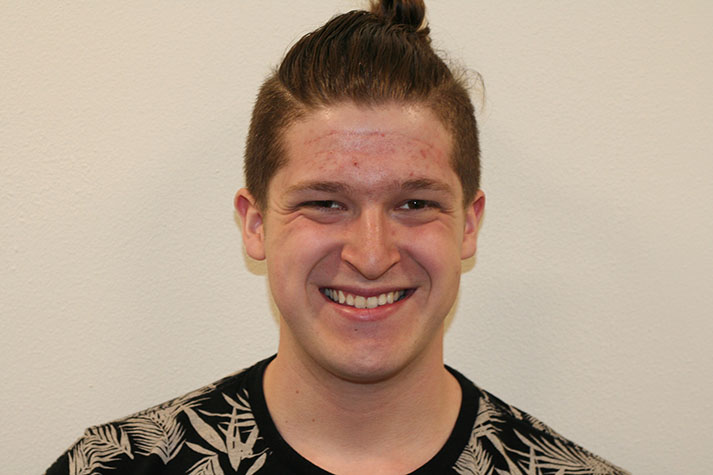
Cameron Calder, a Democratic student at EvCC.
Have you ever noticed that what you “like” and comment on seems to reappear in different forms on your social media? Democratic party member Calder mentioned that social media is great for “Sticking you in an echo chamber for one…What pops up in the recommended feed, it will suck you into a loop of the same kind of stuff…”
Brown says, “You get one person’s side or bias input, and you have to do a lot of research to find the actual factual information from whatever you have read or heard.”
It’s 2018, and whether you’re supportive of it or not, new words and phrases like “triggered,” and “safe zones” have entered common vocabulary. There also seems to be some controversy surrounding the First Amendment, discerning “free speech” from “hate speech.” For the Democrats, Brown says it’s “all about your delivery and approach. Even if it’s hateful and offensive to some people, they still have the right to say it.”
“The first amendment only protects you from the government imprisoning you from what you say, it has nothing to do with private institutions, or individuals blocking you on Facebook or Twitter or whatever. That’s not stifling your free speech. I do think that it’s important to realize that there are some things that don’t provide value to the discussion, and then de-platforming that type of rhetoric, making sure that anything that’s going to cause harm to someone isn’t allowed to proliferate,” says Calder.
When asked for their take on the issue, member of the Republican party, Graves, says, “I completely abide by the first amendment. I believe that you should be able to say what you want on a college campus…the repercussions of that you face on your own.” Calicdan says that you should work on being stronger than the hateful things that may be said about you.
Differences aside, both parties agree that having open discussions is important to grow as individuals and as productive members of society. Calder says, “If all I’m doing is talking to people who reaffirm my beliefs, I’m not challenging or growing or changing myself…if all I’m doing is working with people who like what I like and telling you to go pound sand because you disagree with me, then we’ve just completely negated the whole point of a democracy.”

Where does The Clipper fit into your long-term goals?
I am an Integrated Strategic Communications major, and I am thinking about going into social media...

Where does The Clipper fit into your long-term goals?
My two years of editing experience have been amazingly formative as a leader and professional,...

